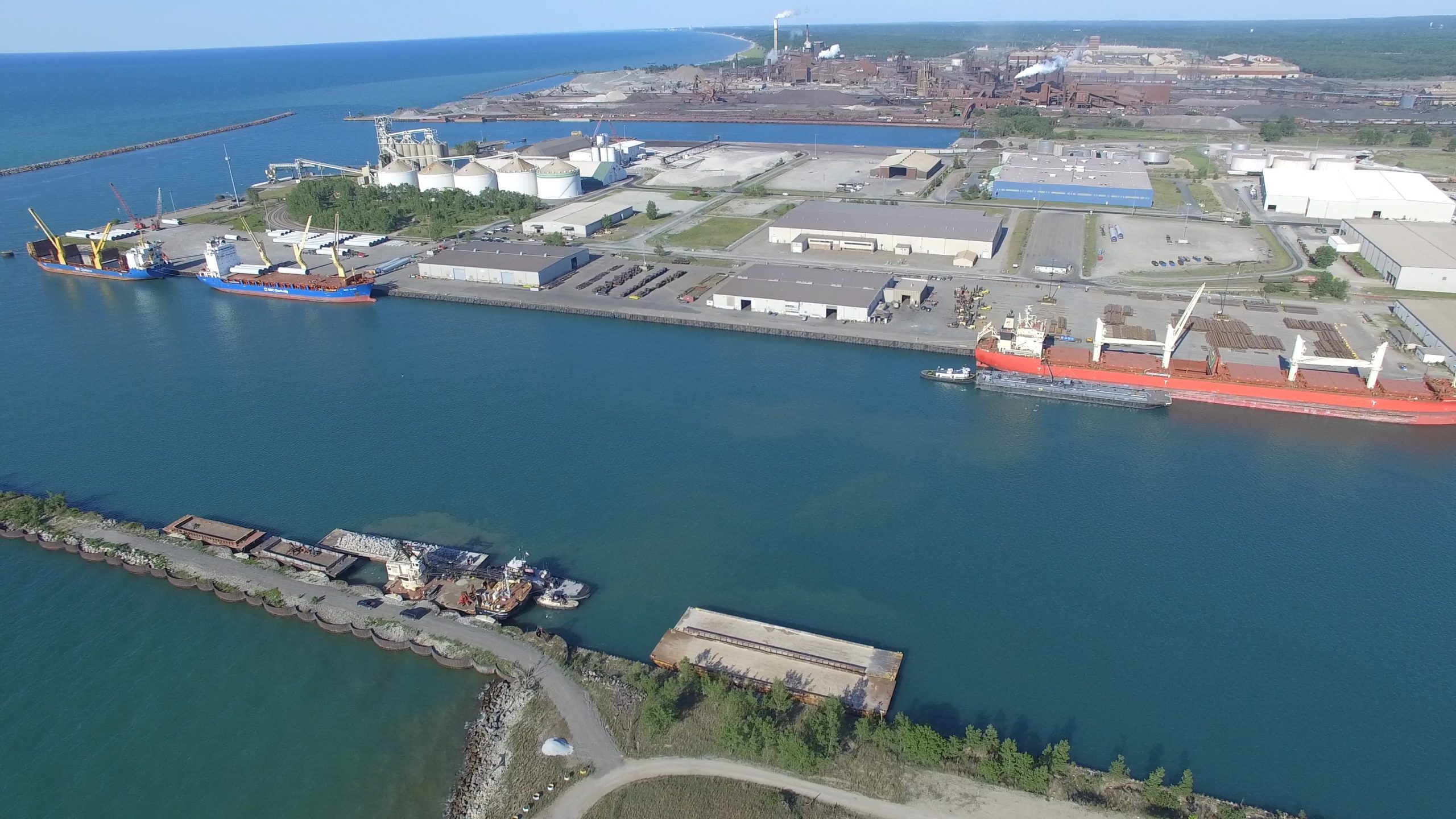U.S. Customs and Border Protection (CBP) has approved a proposal from Ports of Indiana-Burns Harbor to establish the first international sea cargo container terminal on Lake Michigan. This would create the only all-water container route for ocean vessels to serve the greater Chicago metropolitan area via the Great Lakes.
The Burns Harbor terminal is located in northwest Indiana, inside the Greater Chicago Metropolitan Area and within sight of the Chicago skyline. It is part of the 25th largest U.S. port, which handles 25 million tons of cargo annually and generates $16.6 billion in annual economic impact. The Chicago metropolitan area is the third largest in the U.S. with a population of 9.6 million people and is home to the largest intermodal container market in North America. Currently all containers moving through the Chicago market travel by rail or truck.
“This is a critical step in a long process to establish a container terminal at Ports of Indiana-Burns Harbor and a new supply chain for international container shipments,” said Ports of Indiana CEO Jody Peacock. “Having an all-water container route into the Midwest could create transformational opportunities, but it will take time to develop. Our port has the capabilities to handle containers today, but we won’t be able to schedule regular container shipments until the Customs’ facilities are fully operational, potentially in 2026.”
CBP approval was provided in a letter stating it has determined Ports of Indiana’s project justifies the need for a staffed CBP container cargo examination facility at the Burns Harbor port. Also, Ports of Indiana will be responsible for providing infrastructure construction to include a CBP office, equipment, furnishings, supplies, large scale non-inspection equipment, radiation portal monitors and security per CBP’s specifications. Construction and installation of the facility and equipment is expected to occur in 2025.
“This new venture comes with major challenges and major opportunities, but our Ports of Indiana team has made this a top priority because we believe it is critical to providing Indiana with a modern port system,” said Ryan McCoy, port director at Ports of Indiana-Burns Harbor. “Great Lakes shipping is limited by a shorter shipping season and the use of smaller vessels, but the potential upside for handling containers is tremendous. Allowing ocean carriers to start serving this market could diversify supply chains, avoid bottlenecks and reduce the overall carbon footprint for shipping to and from the Midwest.”
The Ports of Indiana Commission recently approved a resolution establishing “The Indiana Container Initiative” formalizing the organization’s commitment to vigorously pursue the development of container shipping facilities at its ports and other locations in Indiana. (Link)
Among U.S. Great Lakes ports, Cleveland and Duluth currently handle container vessels, while Monroe, Mich., is also pursuing CBP approval. Adding Burns Harbor to the list of Great Lakes container ports would allow shippers to utilize a network of container terminals which now includes the largest metropolitan area on the Lakes.
In support of this effort, Ports of Indiana has already garnered memorandums of understanding from potential partners as well as letters of support from other Great Lakes ports and more than 35 government officials, businesses and trade associations.
“We’re working with several businesses that have strong interest in using a regular liner service to Burns Harbor, and the initial container projections are promising,” said Ian Hirt, a maritime consultant working with the port to develop container business. “This will likely be a niche service that offers specialized amenities, such as refrigerated containers or a green alternative, but it could also help avoid bottlenecks and improve supply chain reliability.”
As facility planning commences, Ports of Indiana officials are seeking potential partners and customers to advance the project and will be engaging in a few select partnerships to formalize the initial development plans, quantify volumes and develop a scalable terminal that is appropriately sized to meet current and future demands.
(Photo of Burns Harbour by John Shmoeger)


